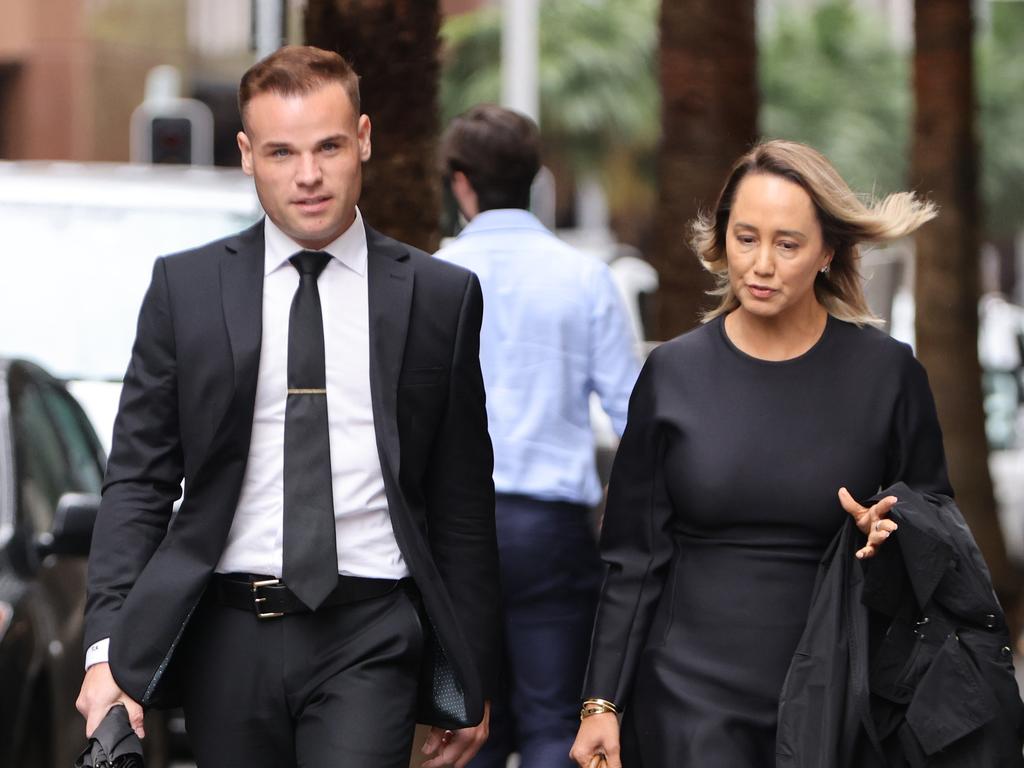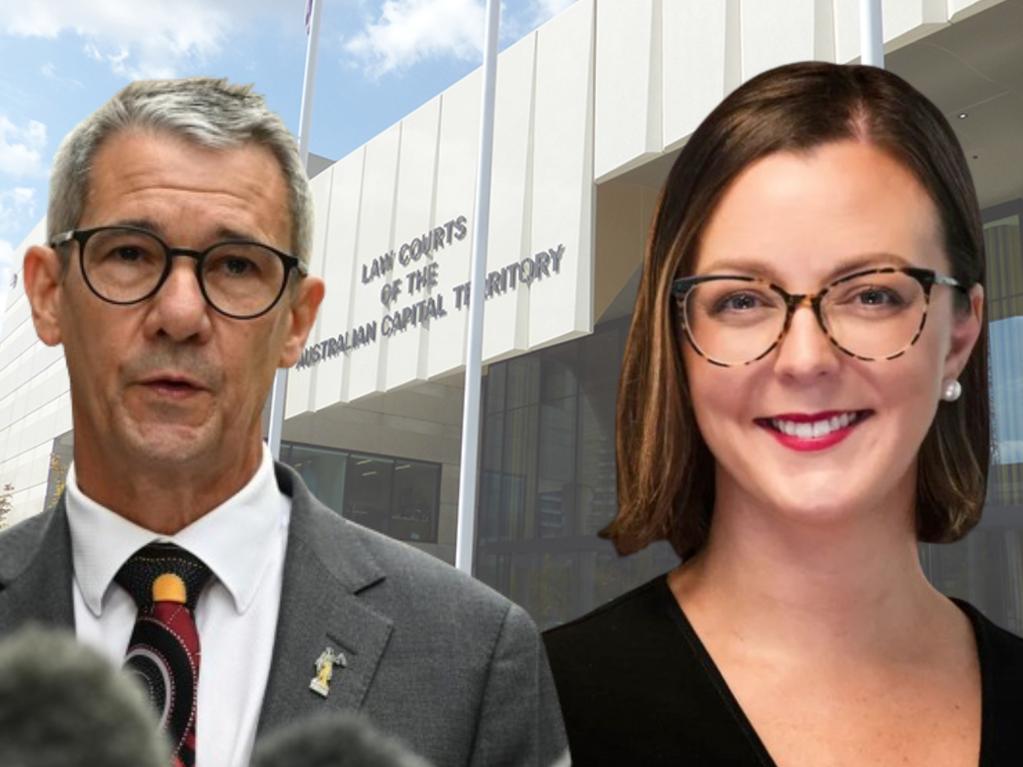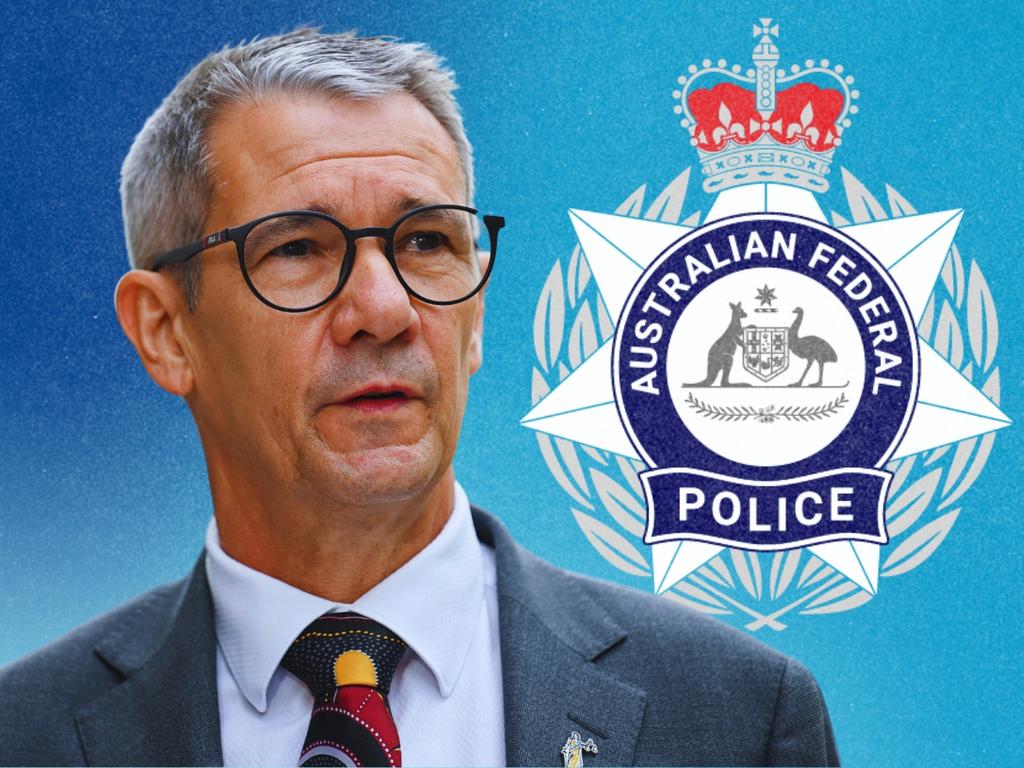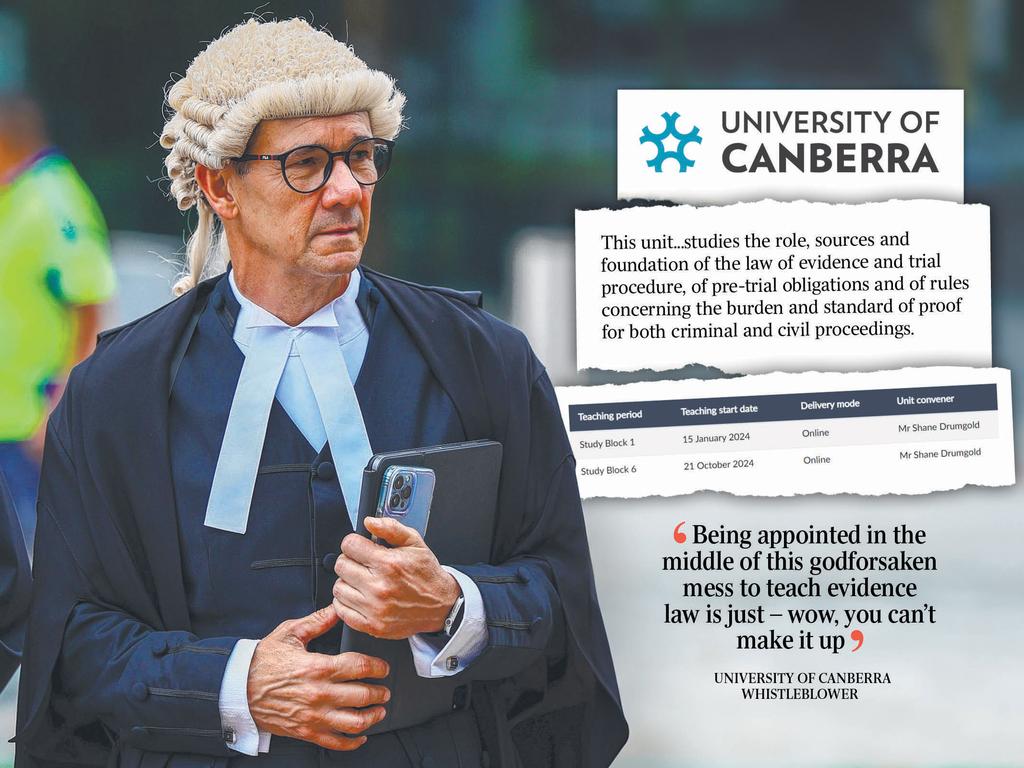Cops sue Shane Drumgold for $1.5 million over ‘disgraceful’ claims
Five AFP officers are suing the former ACT chief prosecutor over his claims they ‘acted disgracefully’ in the Bruce Lehrmann rape case.
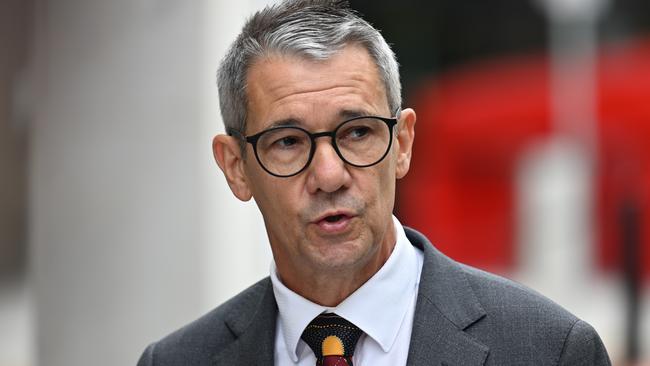
Five Australian Federal Police officers are suing the ACT government for almost $1.5 million over allegations by former chief prosecutor Shane Drumgold that they “acted disgracefully” in seeking to pressure him not to prosecute the alleged rape of Brittany Higgins.
Lawyers for the five officers have sued both the government and Mr Drumgold personally over his allegations against them, which included that they had sought to mislead him as to the strength of the case against Bruce Lehrmann and bullied Ms Higgins.
They also say Mr Drumgold wrongly accused them of “consistently and inappropriately” interfering with his conduct of the prosecution, extending over one and half years.
The allegations were made in a letter Mr Drumgold sent to ACT police chief Neil Gaughan on November 1, 2022, expressing concern over “some quite clear investigator interference in the criminal justice process”.
The letter sparked the Sofronoff inquiry into police and prosecution conduct in the Lehrmann case, which largely exonerated police and found that Mr Drumgold’s assertions were baseless.
Each of the five applicants – Detective Inspector Marcus Boorman, Commander Michael Chew, Detective Superintendent Scott Moller, Detective Senior Constable Trent Madders and Senior Constable Emma Frizzell – was identified by name in the letter.
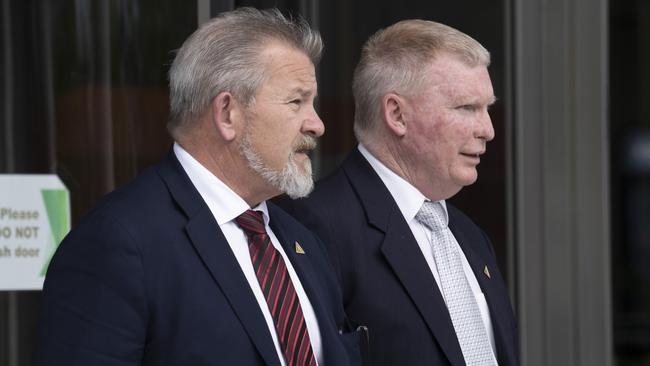
In a statement of claim released by the Federal Court on Wednesday, the officers say Mr Drumgold knew or ought to have known that the imputations in the letter were false and unsupported by evidence.
The officers are suing for a total of $1.415 million in damages and economic loss, with Mr Boorman’s claim the highest, at $250,000 for general damages, $85,000 for aggravated damages and $80,000 for economic loss.
One of the AFP officers previously told The Australian the letter had “destroyed careers and destroyed people’s lives”.
“When you’re in a profession where integrity is pivotal, if you lose your integrity, if it’s suggested that you are corrupt or you’ve trying to pervert the course of justice or influence something, it just goes against the grain,” the officer said.
The officers are also suing over Mr Drumgold’s release of the unredacted letter to a journalist from the Guardian, purportedly under FOI legislation but which in truth, they allege, he had no right to hand over.
The letter, containing the DPP’s suspicions of impropriety against the named police officers and Senator Reynolds, was released without any consultations or redactions. The FOI application was determined and executed within four hours of being considered for the first time.
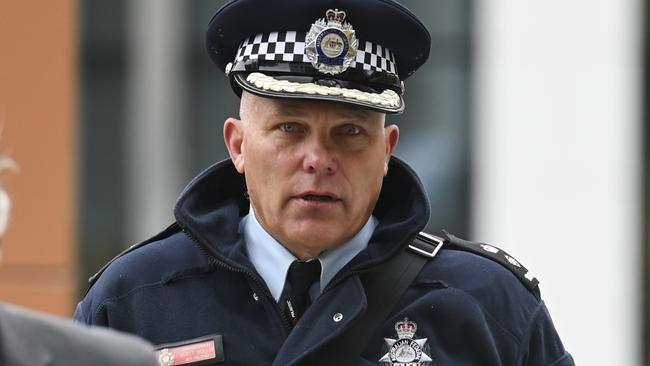
The claim alleges that unauthorised act by Mr Drumgold amounted to misfeasance in public office because it was “done maliciously by Mr Drumgold, in that he knew he had no valid power to release the letter and … harm to the Applicants was reasonably foreseeable.”
The allegations by Mr Drumgold “went to the heart of each applicant’s role and standing as a police officer” and led to the establishment of the Sofronoff inquiry, which in turn exposed them to further reputational harm.
Earlier this year the ACT government apologised to former Liberal minister Linda Reynolds and paid $90,000 in damages and legal costs over accusations by Mr Drumgold in the same letter that the senator had engaged in “disturbing conduct” that included political interference in the police investigation.
The Sofronoff inquiry found that suspicions Mr Drumgold formed during his early interactions with the investigators “predisposed him to see non-existent malignancy in benign interactions between the police and the defence at the trial”.
Mr Drumgold complained police were speaking with the defence at the trial during adjournments. However, it was not surprising police felt deep antipathy towards the DPP since the feeling was mutual, the Sofronoff inquiry found.
“Mr Drumgold did not seem to appreciate that mutual trust is a two-way street. It was he who, at the first opportunity, formed the baseless opinion that the investigators were improperly trying to thwart a prosecution.
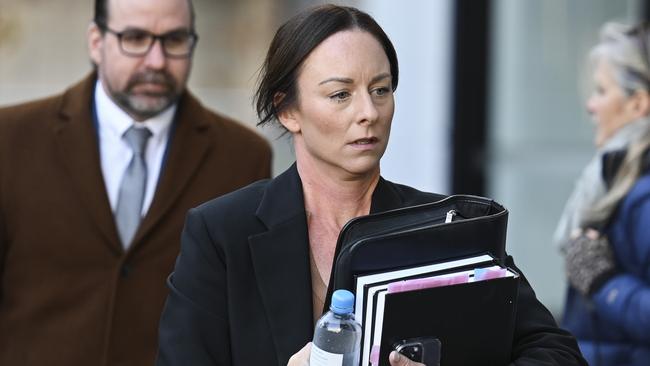
“This inquiry has thoroughly examined the allegations in Mr Drumgold’s letter. Each allegation has been exposed to be baseless.”
Late in giving his evidence, Mr Drumgold “finally resiled from his scandalous allegations,” inquiry chair Walter Sofronoff noted. Mr Sofronoff said that “any official writing a letter of that kind would also know that copies of the letter would have to pass through many hands and that there was a real risk that it would be made public”.
“In fact, it was with the help of Mr Drumgold himself that the letter defaming others made its way into a newspaper.”
Mr Sofronoff found no police acted improperly: “The evidence before me showed that the investigators consistently acted in good faith and conducted a thorough investigation … Nobody suggested to me that the investigation was flawed in any way.”
The police had made mistakes, Mr Sofronoff said, including conducting a second interview with Ms Higgins that was not likely to produce anything useful and which caused her distress.
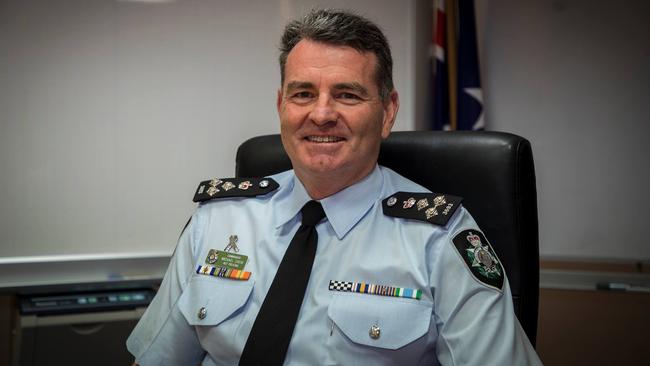
“None of these mistakes actually affected the substance of the investigation and none of them prejudiced the case … I do not find that any police officer breached a duty or acted improperly.”
One of the officers bringing the defamation action was critical of the ACT government’s attitude towards its police force.
“The ACT, it’s a bubble here. It is a very closed shop and I think some of the people in these positions are batting way above their weight,” the officer previously told The Australian.
“Two police stations are closed because the government hasn’t invested. They have no care for the police at all. The number of police that are off due to stress, or leaving, it’s phenomenal.”


